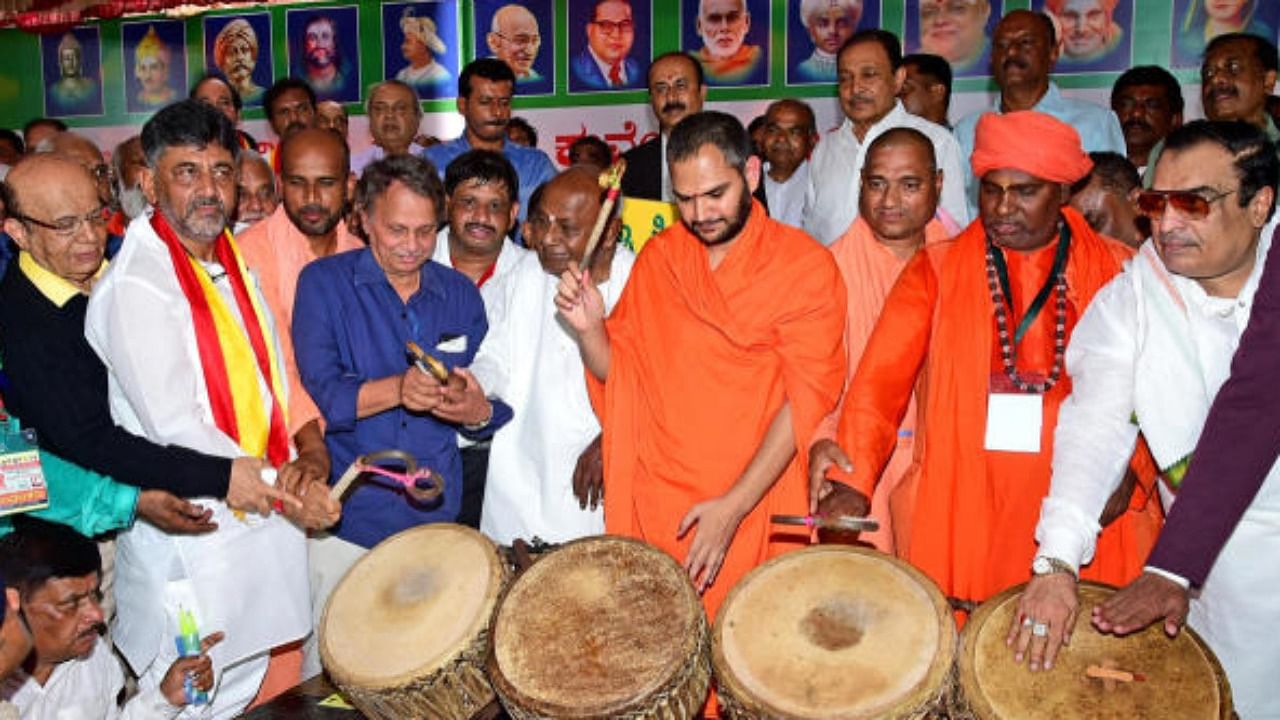
Schools have reopened, but Chandrakala, a teacher at a government high school, faces dilemma every day: when will the existing textbooks change next?
This, even as the Congress’ manifesto promise of revisiting textbooks that were framed
under the previous BJP government has picked up pace.
Chandrakala was in a similar dilemma last year too, when she and thousands of teachers working in schools that follow syllabus, prescribed by the state government, had to switch to a new set of textbooks.
Also Read | After studying state boards, Centre hints at change in curriculum
Ideological preferences
For several years, the political party that comes to power has the habit of revising textbooks, mostly based on ideological preferences.
In 2015, the then Siddaramaiah-led Congress government appointed writer Baraguru Ramachandrappa to head the textbooks revision committee. Its task was to review the content of textbooks introduced between 2008 and 2013, when the BJP government roped in academic G S Mudambadithaya to head the committee.
‘Saffronisation’ charges
In 2021, the BJP government appointed a committee headed by Rohith Chakratirtha to revise textbook content, which resulted in a big storm amid allegations of ‘saffronisation’ of school education.
In this clash of political ideologies, the real stakeholders - teachers and students - are suffering.
“We don’t understand why every government is targeting textbooks,” a headmaster at a private unaided school in Bengaluru says.
“This is creating confusion and we face it almost every time a new government comes.”
The new School Education and Literacy Minister Madhu Bangarappa has already announced that an expert committee will be constituted to revisit textbooks.
‘Revise when year starts’
Teachers opine that such revision of textbooks should be considered and done before the commencement of the academic year.
“We, teachers and students are the real victims whenever the government revises textbooks in the middle of the academic year and issuing corrigendums puts us under unnecessary tension,” says another teacher.
Experts say textbook revision should be in the best interest of students. Child rights expert
V P Niranjanaradhya said political parties should
not be prejudiced as far as textbooks are concerned.
“Pushing one particular party’s agenda in the textbooks should end. The textbooks should be designed as per the values of the Constitution and principles laid down in the Right to Education Act,” he says.
Niranjanaradhya said that in the framing of textbooks, subject experts, teachers and pedagogical gurus should be given importance.
‘Follow UN charter’
“The United Nations Convention on the Rights of Children should be the guiding principle for any decision regarding children and this will be applicable even for textbooks. Textbooks should be free from all biases. Just leave the learning process to the children,” Niranjanaradhya said.
Vinay K Sreenivasa, a social activist, points out that the National Curriculum Framework (NCF) must be followed while revising textbooks.
“Education must prepare citizens for the future of our democracy. We are not interested in any ideology and only pedagogic interests should be considered by taking opinions of students, parents’ associations, teachers, schools and SDMCs, while revising or framing textbooks,” he says.
‘Go by NCF’
But since 2017, textbooks are not being prepared as per the NCF, according to D Shashi Kumar, general secretary of the Associated Managements of Primary and Secondary Schools in Karnataka.
Kumar points out that people belonging to particular sections of society are appointed to textbook committees.
“A research paper released by NCERT evaluating textbooks in Karnataka was not considered by any government so far,” he says.
With the new Congress government appearing to move towards changing textbooks, Kumar said he is receiving inquiries from parents and teachers, seeking clarity.
“Some of our teachers are advising us to wait for a few days, before they start lessons. In the previous academic year, the corrigendum reached schools at the end of the academic year, leaving us in a lurch,” he says.